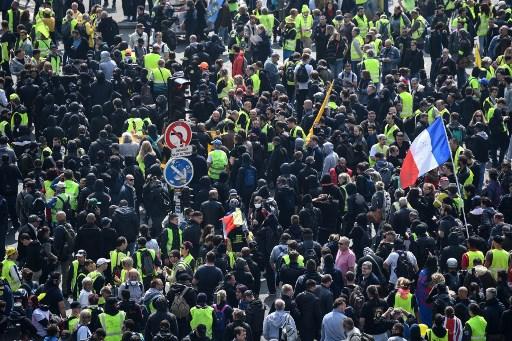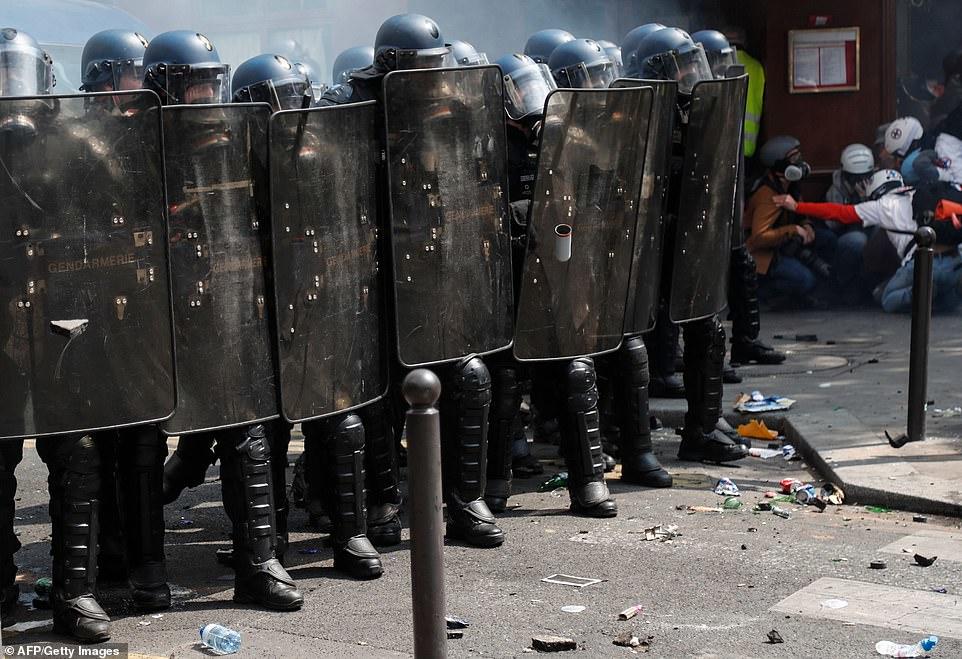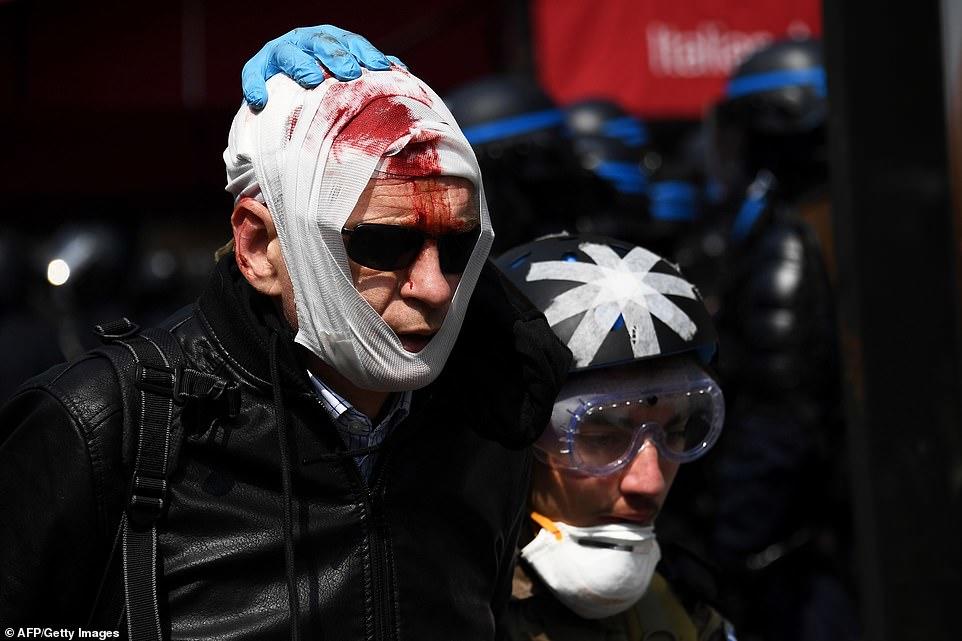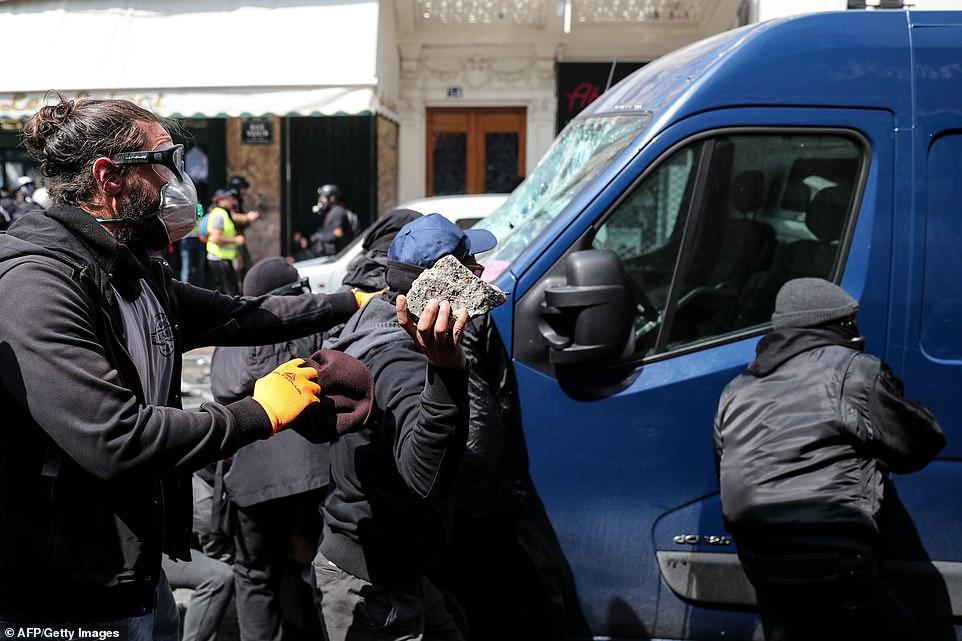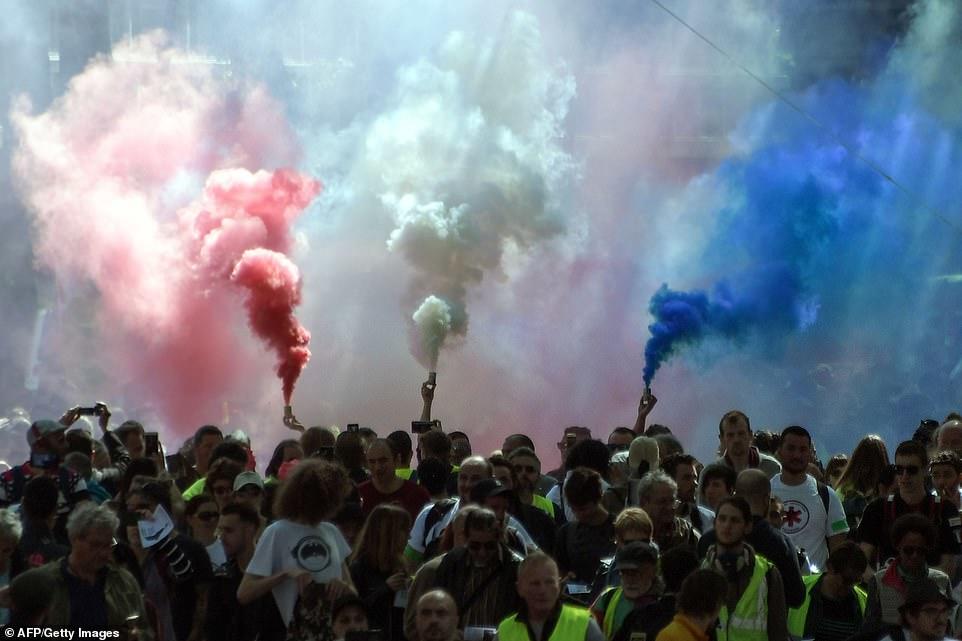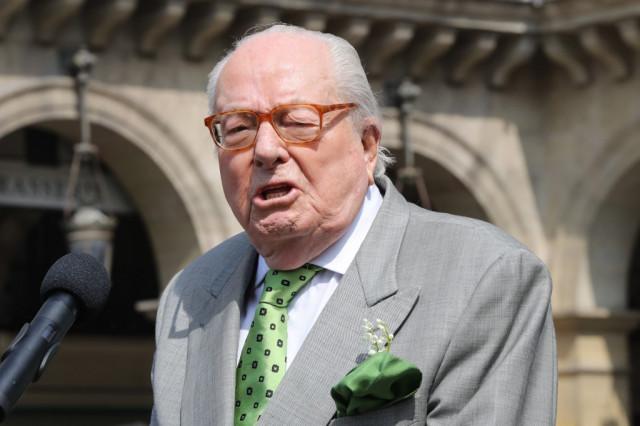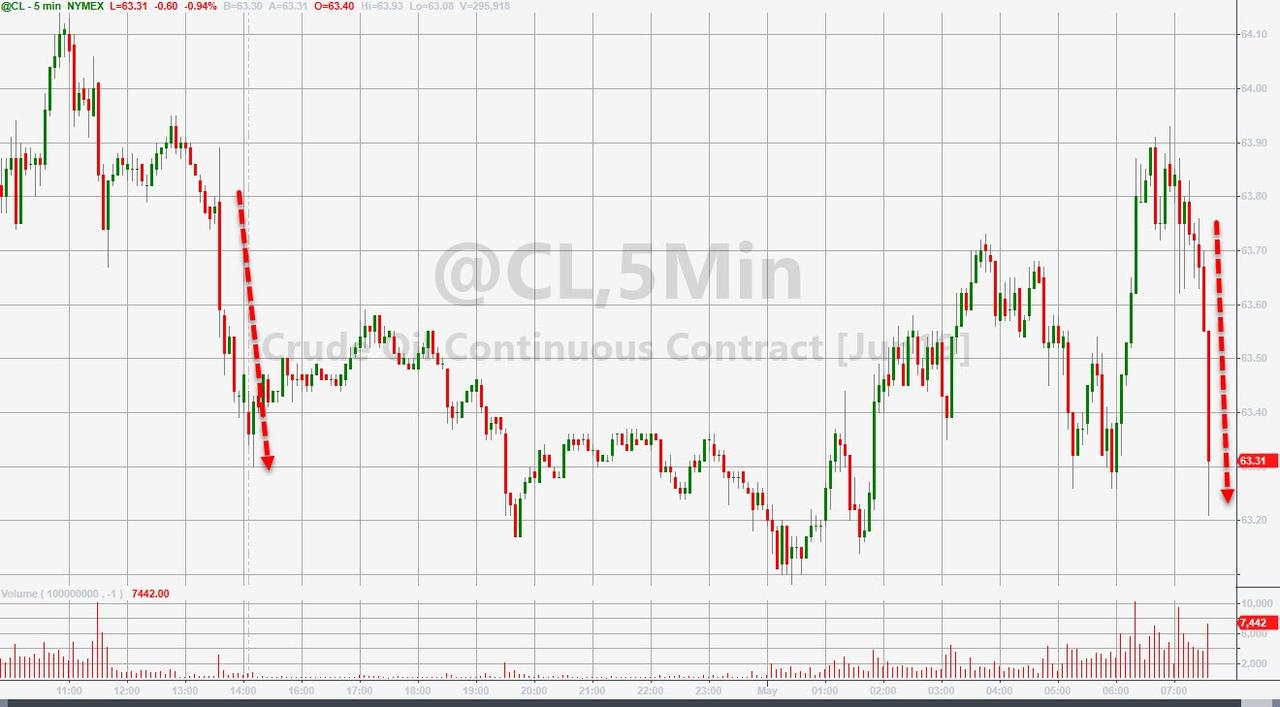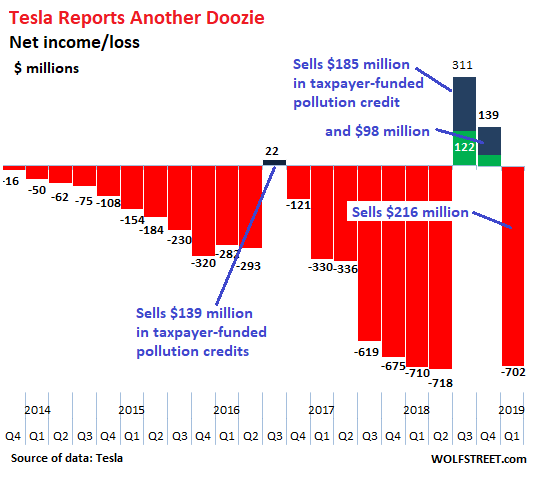Tens of thousands of protesters took to the streets of Paris and other French cities on Wednesday to mark International Workers’ Day (also known as Labor Day), only to clash with French riot police. The demonstrators included Yellow Vests, trade unionists, climate change protesters and Black Bloc (antifa) – which posted on social media that they wanted an “Armageddon” rally that would turn Paris into the “Riot Capital of Europe,” according to the Daily Mail.
More than 7,400 police, gendarmes and soldiers were on hand to quell the more violent protesters. Interior Minister Christophe Castaner said “‘There’s no question of dramatising anything, it is a question of being prepared,” adding that “1,000 to 2,000 extremists” were expected to join the protests.
Les Marianne Lilloises ont rejoint le cortège en silence #1erMai #Lille pic.twitter.com/OTEU45Jf1M
— François Launay (@francoislaunay) May 1, 2019
Marching alongside labor unions, pensioners, students and others, the protesters were hit with large amounts of tear gas, baton strikes and other crowd control measures.
VIDEO: 🇫🇷 Clashes have broken out in Paris between police and “black bloc” protesters who joined “yellow vest” demonstrators at the front of the march before the official start of the trade union demonstration on #MayDay #LabourDay #1erMai pic.twitter.com/Cp6c14CiXk
— AFP news agency (@AFP) May 1, 2019
Thread:
Macron Regime Riot Police fire Tear Gas and Stun Grenades as they Baton Charge protesters at the start of the traditional May Day parade in #Paris.#Montparnasse#1erMai#1Mai#GiletsJaunespic.twitter.com/c469ihu579— Ian56 (@Ian56789) May 1, 2019
🇫🇷 💥 #Paris: As a result of the tensions in the French capital during #1May2019 manifestation, the front window of a police van was destroyed by #Antifa crap#1May #Syndicats #GiletsJaunes #YellowVests #1erMai pic.twitter.com/hgUuOTZioq
— Compact News 🌐 (@NewsCompact) May 1, 2019
According to The Local, over 200 people have been arrested around Paris’s Montparnasse neighborhood. Of those, 148 remain in police custody. Police have performed over 12,400 checks on protesters, according to the report.
Clashes with police begain in Paris around 1pm, as numerous hooded and masked troublemakers were spotted.
#Paris Two injured protesters were quickly evacuated from the procession #1erMai #Giletsjaunes #Yellowvests pic.twitter.com/nyyn8d6tXh
— nonouzi (@Gerrrty) May 1, 2019
The founder and former leader of France’s right-wing Front National (FN) party, Mean-Marie Le Pen delivered a May 1 speech at the Place des Pyramides during a rally to honor Jeanne d’Arc.
“Let’s have the courage to be nationalists,” he told the crowd, predicting “serious social and political dramas” to come.
Meanwhile in the southern French city of Toulouse, over 1,000 protesters made their way through the streets of la ville en rose, however local media has yet to report any violence according to The Local.
#1erMai à #Nantes : plusieurs milliers de manifestants, syndicats #CGT #Solidaires en tête de cortège, les #GiletsJaunes derrière, suivis de #UNEF et #UNL pic.twitter.com/63MdSU7IRk
— FranceBleuLoireOcéan (@bleuloireocean) May 1, 2019
via ZeroHedge News http://bit.ly/2J3feCC Tyler Durden
